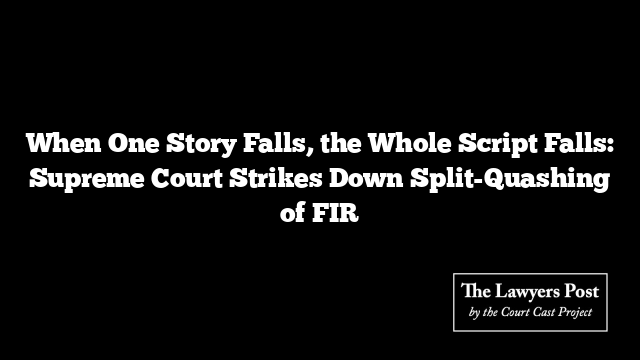In a firm reminder that a single incident cannot be sliced into convenient legal fragments, the Supreme Court has overturned a Bombay High Court decision that tried to do exactly that. The High Court had erased several charges from an FIR on the basis of a compromise, yet allowed the dacoity allegation to survive — even though every accusation stemmed from one continuous episode.
The Supreme Court wasn’t persuaded.
A bench of Justices Vikram Nath and Sandeep Mehta held that once the compromise was accepted as genuine for quashing certain offences, the remaining charge — rooted in the very same facts — could not stand on independent legs. Keeping one limb of the FIR alive while amputating the rest, they said, simply didn’t fit the legal anatomy of a single-transaction case.
The FIR in question involved claims that a group entered a school premises, assaulted staff, and carried away documents, stamps, and cash. The High Court quashed offences relating to assault and intimidation following a settlement, yet treated the dacoity allegation as untouchable, arguing that it targeted the institution rather than private parties.
The Supreme Court disagreed decisively. Once the compromise was deemed authentic for some charges, the foundation of all charges built on the same factual structure was equally weakened, the bench noted. A “more serious charge,” it said, cannot be kept running when the underlying story has already been neutralized.
With that, the appeal succeeded, and the attempt to split one incident into multiple legal outcomes was shut down.





